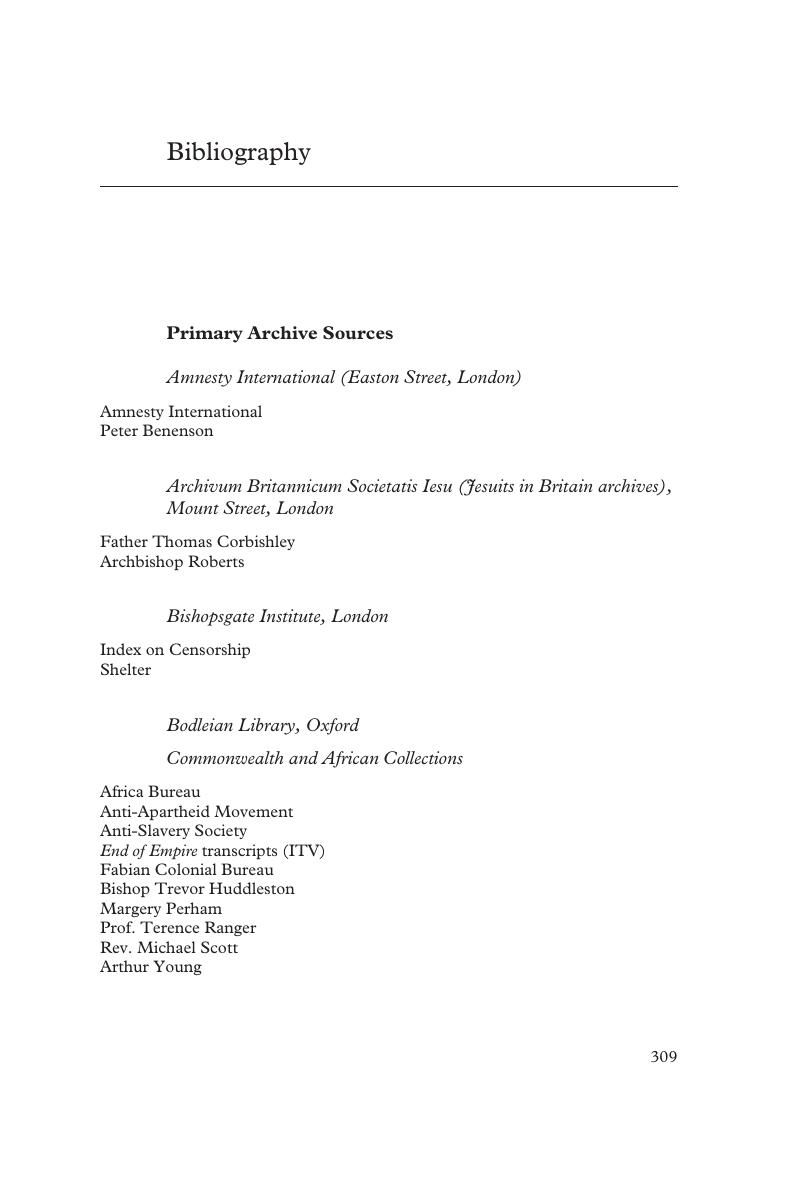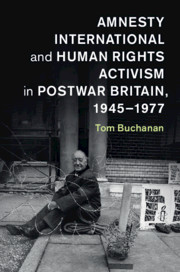Book contents
- Amnesty International and Human Rights Activismin Postwar Britain, 1945–1977
- Human Rights in History
- Amnesty International and Human Rights Activism in Postwar Britain, 1945–1977
- Copyright page
- Dedication
- Epigraph
- Contents
- Preface and Acknowledgements
- Abbreviations
- Introduction
- 1 Dawn: 1934–1950
- 2 Africa, Decolonisation and Human Rightsin the 1950s
- 3 Political Imprisonment and Human Rights, 1945–1964
- 4 The Early Years of Amnesty International, 1961–1964
- 5 ‘The Crisis of Growth’: Amnesty International 1964–1968
- 6 1968: the UN Year for Human Rights
- 7 Torture States: 1967–1975
- 8 ‘All Things Come to Those Who Wait’: the Later 1970s
- Conclusion: the Winds of History
- Notes
- Bibliography
- Index
- References
Bibliography
Published online by Cambridge University Press: 10 April 2020
- Amnesty International and Human Rights Activismin Postwar Britain, 1945–1977
- Human Rights in History
- Amnesty International and Human Rights Activism in Postwar Britain, 1945–1977
- Copyright page
- Dedication
- Epigraph
- Contents
- Preface and Acknowledgements
- Abbreviations
- Introduction
- 1 Dawn: 1934–1950
- 2 Africa, Decolonisation and Human Rightsin the 1950s
- 3 Political Imprisonment and Human Rights, 1945–1964
- 4 The Early Years of Amnesty International, 1961–1964
- 5 ‘The Crisis of Growth’: Amnesty International 1964–1968
- 6 1968: the UN Year for Human Rights
- 7 Torture States: 1967–1975
- 8 ‘All Things Come to Those Who Wait’: the Later 1970s
- Conclusion: the Winds of History
- Notes
- Bibliography
- Index
- References
Summary

- Type
- Chapter
- Information
- Publisher: Cambridge University PressPrint publication year: 2020

